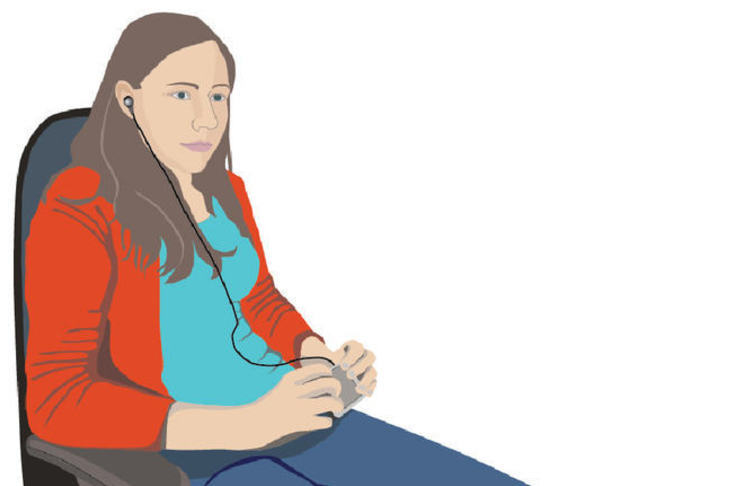Carole, 34 and single, lives in an apartment in the centre of Paris, near Bastille. She has a guide dog, but she says this is mostly because it’s great for socialising, as she really is quite good at getting around in Paris.
Carole lost her sight when she was in her twenties due to retinitis pigmentosa. Some of her relatives have the same condition, but when she was young, Carole did not want to hear about Braille. As a consequence, she learnt it at a later age and is not very good at it, but tries to use it at times for her postgraduate History course.
A day in the life of Carole
Carole is a competent technology user with a Windows laptop and the open-source screen reader NVDA, which renders the content of the computer screen through synthetic speech. In her university they have offered her a Windows desktop computer and the commercial screen reader JAWS plus a Braille display. She never uses Braille for reading, but it can be useful when she has to edit text, to check the spelling of words, etc.
Challenge 1: documents without structure
Today, Carole has received a 75-page paper in digital format from another researcher; she needs the data in it to complete another journal article that she is working on. Through her screen reader, the report appears to have no structure at all; Carole has no way to access a table of contents or to use the headings to navigate to specific sections. On the screen she is sure that the text shows headings and subheadings using different fonts and sizes, but she cannot perceive these features.
She can only find the information she needs by reading the entire document. She can also search the text, but she is not certain whether this will lead her to the right sections. As a result, it takes her most of the day to find information that would have required only an hour or so if the document had been properly designed.
Challenge 2: apps that are not screen reader accessible
On her way home, the bus is diverted due to a fire on its usual route. The bus company’s smartphone app is not screen reader accessible, so she could not find this out before getting on the bus. If she had known, she would have taken the subway. In addition, due to the diversion, she cannot rely on the automatic announcements of the bus stops on the bus, so she needs to ask other passengers to tell here where to get off.
Challenge 3: poor photocopies affect scanning and optical character recognition (OCR) output
When she gets home, she finds a letter that she runs through a scanner with an OCR program. It is almost unreadable because it was poorly photocopied. She shows the letter to a friend over a video chat program; it turns out to be an invitation to a meeting about the co-ownership of the block of flats where she lives. She calls the concierge to ask him what is going on. She feels very frustrated and she knows she will probably have a similar problem when she tries to scan another PDF sent via email and convert it to Word to see how she needs to layout a poster.
Challenges 4 & 5: inadequate image descriptions and inaccessible online payment
After dinner, she starts her computer again and goes online to find out more about the conference where she has had her abstract and idea for the poster accepted. The structure of the website is quite complex and Carole has difficulty finding the final submission details.
The website has a series of drop down menus but they do not appear to be keyboard accessible and when she finally manages to land on the submission page some edit boxes on the form appear to lack descriptive labels as all she can hear is ‘edit box’ and it does not always tell her what she needs to type.
Susan manages to enter her name and address and hopes that some of the other requirements have been guessed correctly. She sends an email to the organiser stating her concerns. Once again she is frustrated and upset. She will have to wait for the conference organiser to confirm all is well and also to send her an accessible version of the poster requirements. Everything seems to take so long and means she wastes valuable time on things that really need to get done such as her journal paper.

